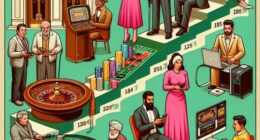IEEE Bans Lenna Image from Image Processing Research
In a significant shift within the computer science community, the iconic “Lenna” image, a staple in image processing research for nearly five decades, has been officially retired. The IEEE Computer Society, a leading global organization for computer science professionals, stated it will no longer accept research papers featuring the “Lenna” image to foster an inclusive and equitable culture.
The “Lenna” photo, taken from a November 1972 Playboy magazine, features Swedish model Lena Forsén. Captured by photographer Dwight Hooker, it became an accidental benchmark for image processing due to its high contrast, detail, and texture. Originally scanned in 1973 by Alexander Sawchuk at the University of Southern California’s Signal and Image Processing Institute, its unexpected journey from a magazine centerfold to a research tool exemplifies the unpredictability of technological artifacts.
However, the use of an image originating from Playboy has long raised questions about objectification and the lack of diversity within the tech sector. Acknowledging these concerns, the IEEE Computer Society’s recent communication to its members explicitly discourages the continuation of “Lenna” in scholarly works. From now on, reviewers and committee members are instructed to ask authors to replace the “Lenna” image in submissions, marking a significant policy shift aimed at removing content that may perpetuate outdated or discriminatory norms.
Lena Forsén herself, now 73, has voiced her agreement with this change. Her unplanned and mostly reluctant involvement in tech’s evolution was highlighted in the 2019 documentary Losing Lena, which critiques the culture of exclusion and bias that “Lenna” inadvertently symbolized. Despite the technical merits associated with “Lenna” in advancing imaging algorithms, including those used in JPEG format, the documentary and Forsén’s sentiments reflect a broader call to reevaluate the symbols and practices in tech.
The decision by IEEE mirrors actions by other institutions, such as the journal Nature, which banned the image in 2018. This reflects a growing awareness and correction of biases within the scientific and technical communities, aiming to create a more inclusive environment. By moving away from “Lenna,” the IEEE Computer Society is not only honoring Forsén’s wish to “retire from tech” but is also addressing the deeper issue of respect and representation in technology.
As the tech industry continues to evolve, the retirement of “Lenna” serves as a poignant reminder of the importance of scrutinizing the cultural artifacts we use in research and development. This move by the IEEE Computer Society is likely to spark further discussions and changes aimed at fostering a diverse and inclusive field, ensuring that the legacy of computing is one that all can be proud of.










